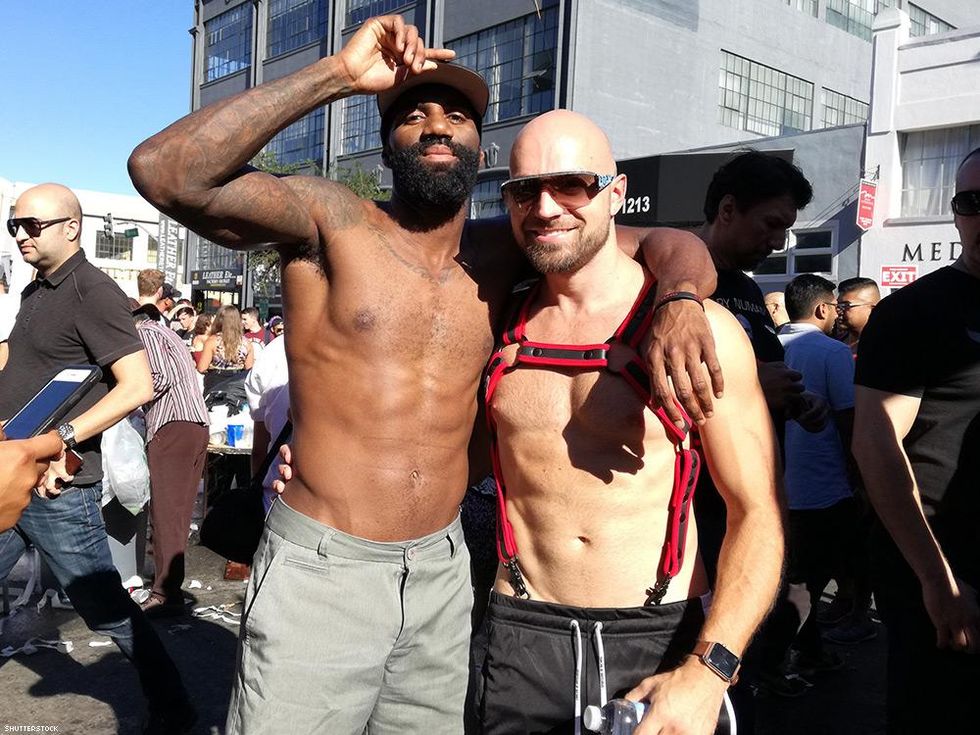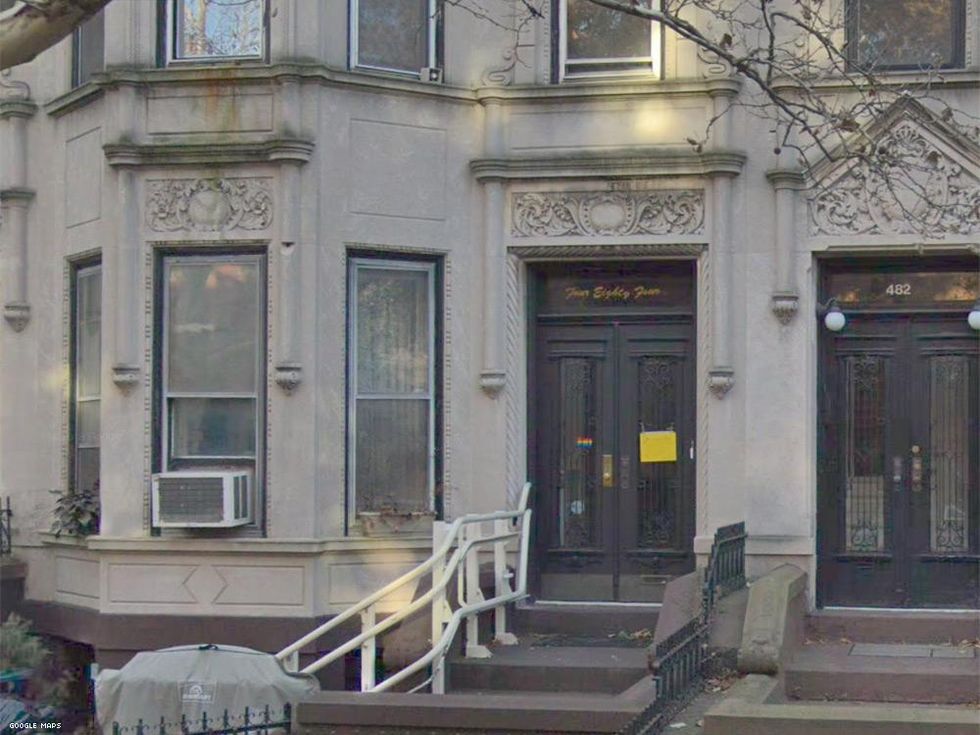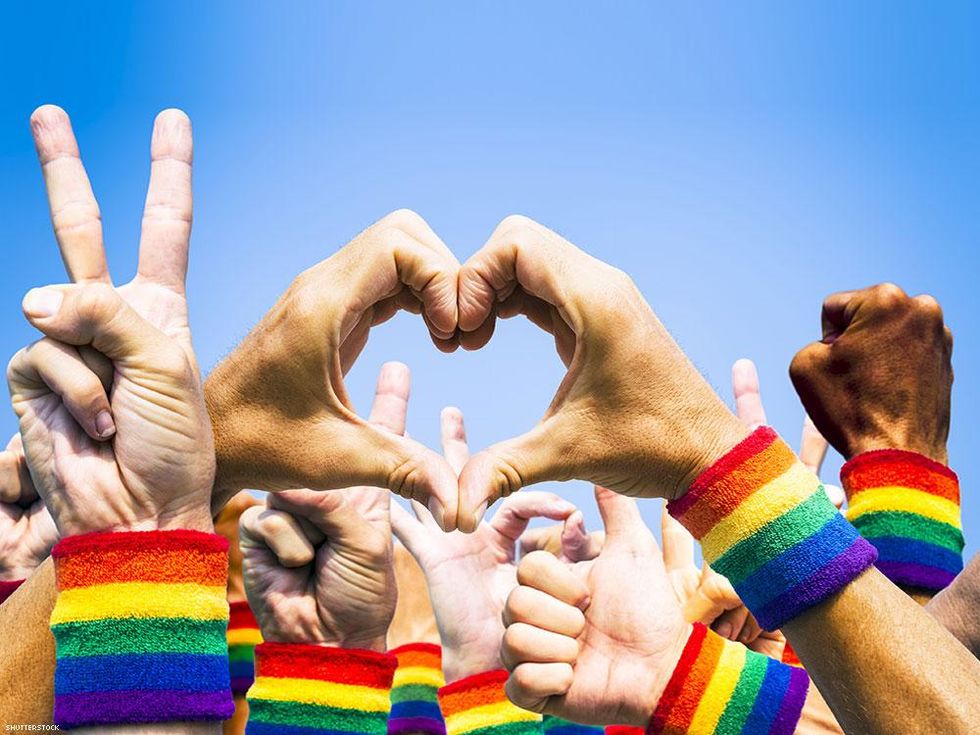The more you know, the better.

Shutterstock
There are so many misconceptions out there when it comes to aromanticism. A lot of people confuse it with asexuality (but we'll get there in a minute), but aromantics are a category all in their own.
Whether you are or think you might be aromantic or are just looking to expand your knowledge, here are 10 common myths about aromanticism debunked.
#1 Aromantic and asexual are the same thing

Shutterstock
It may seem confusing if you’re unfamiliar with these terms, but no, being aromantic and being asexual are not one and the same. Asexual people, known as “ace,” don’t experience any sexual orientation or attraction toward others. Aromantics, on the other hand, known as “aro,” don’t have any romantic attraction toward anyone.
Aces may form romantic relationships throughout their lives, and unlike aromantic people, they can experience those romantic feelings. Aromantics can have sexual orientations and experience sexual attraction that they can build relationships on, but lack the romantic depth to take their relationships further.
#2 Aromantics are cold-hearted and lack empathy
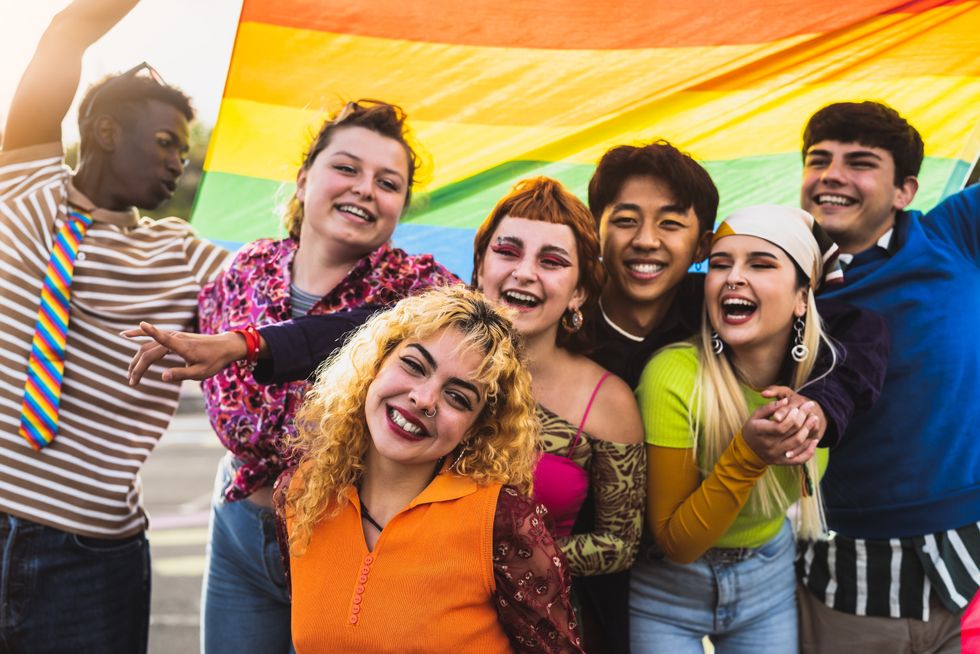
Shutterstock
This is not only one of the biggest misconceptions against aromantics, but also one of the most hurtful. There are plenty of types of love that can be explored through life. Familial love, friendship, a connection with your pets, nature, or anything else in between. Many aromantics simply believe that love transcends the idea of a romantic connection and lean toward platonic relationships based on shared interests and mutual respect rather than romance.
#3 Aromantics "haven't found the right person" yet
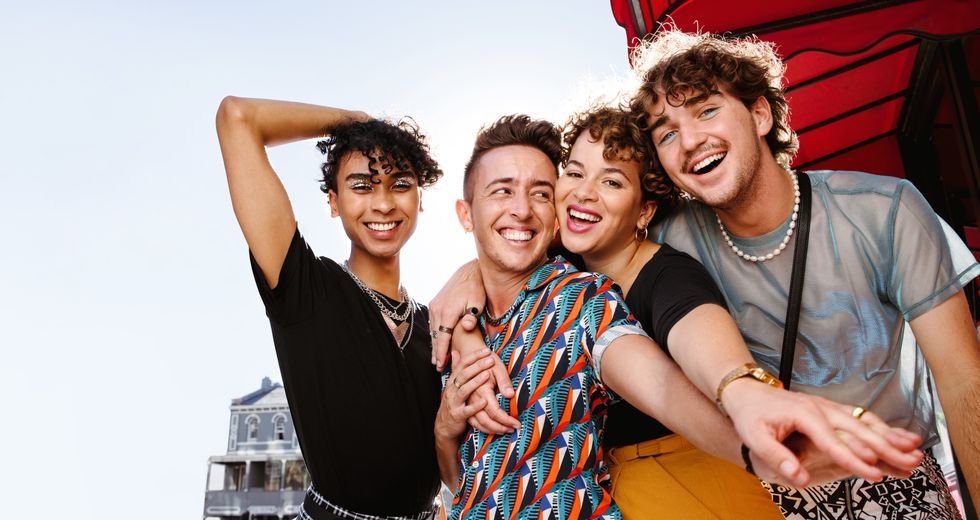
Shutterstock
You may identify as ace, aro, or even both. If you identify as either, you probably have a plethora of people in your lives just telling you that you “haven’t found the right person yet” or you just “need more experience in dating.”
Forget all that. This insinuates that aros need some “right person” to come in and “fix” their lack of romantic desire. Aromantics are also not “missing out” on something if they choose not to pursue any idea of dating anybody else.
#4 Aromantics don't enjoy romantic content
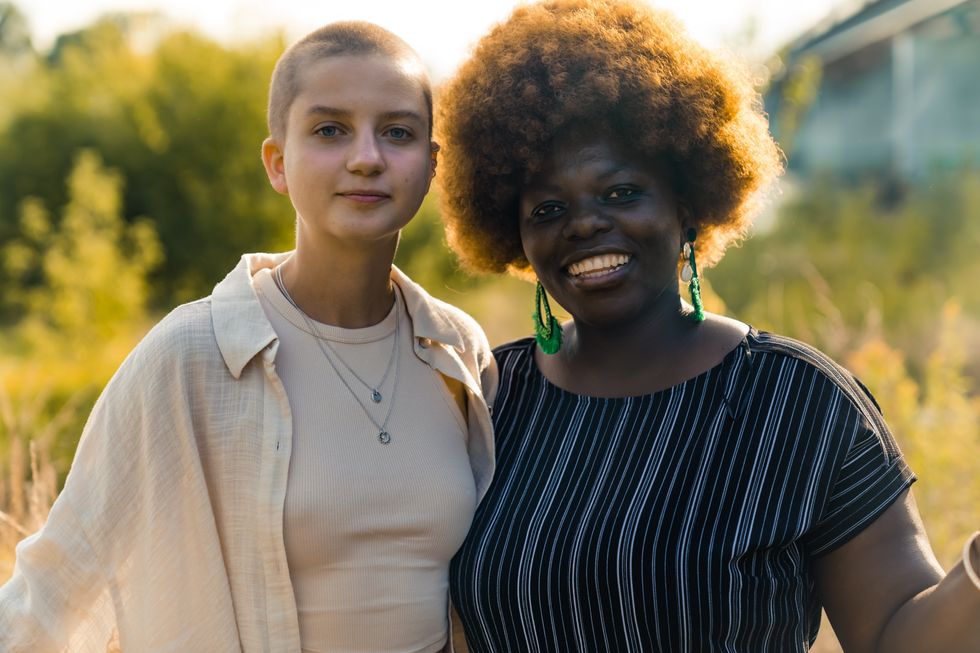
Shutterstock
Just because you might not want to be with someone romantically doesn’t mean you don’t enjoy any romantic content at all. Whether this be a movie, a love song, or even a book, it’s perfectly normal for aros to still enjoy romantic things. Most aromantics are either romance-positive, romance-indifferent, or romance-repulsed. Where you fit on that spectrum determines your outright reactions to any displays of romance at all.
#5 It's "easier" to be aromantic

Shutterstock
I mean, seriously? Just because aros don’t get all caught up in the absolute messes that can become romantic relationships, it doesn’t mean their lives are any easier. First of all, they’ll still have any number of complicated relationships still happening in their lives (remember family members and friends from earlier?) Apart from that, they still have to go through the same agonizing mental journey toward accepting themselves in the first place, and they’re identifying with a sexuality either completely ignored or with people telling them to get over it. Trust me, it isn’t easier for them than it is for the rest of us, either.
#6 Aromantics simply fear commitment

Shutterstock
Let’s circle back again to the idea of friends and family. It’s just important to remember the sheer amount of different types of relationships aromantics commit to throughout their lives. The committed, non-romantic relationships they experience take just as much work as finding love. Have you ever had a best friend who’s let you go more than three weeks without talking to them? Any relationship needs some upkeep. Aromantics don’t fear the commitment, they just choose it a little more wisely.
#7 Aromanticism is just a phase

Shutterstock
Has anyone else ever been completely infuriated when someone told them who they are is just a phase? Aromantics are just as likely to undergo scrutinization like this, and while sexuality is fluid and can change, not everyone who identifies as aromantic will be that way their whole lives.
That said, it doesn’t invalidate aromanticism being a valid and real orientation. The same as homosexuality and heterosexuality aren’t just phases, neither are aromanticism (or asexuality, for that matter.) Aros may take a little longer to figure things out, but they’re just as valid as they explore.
#8 Aromanticism is a gender identity
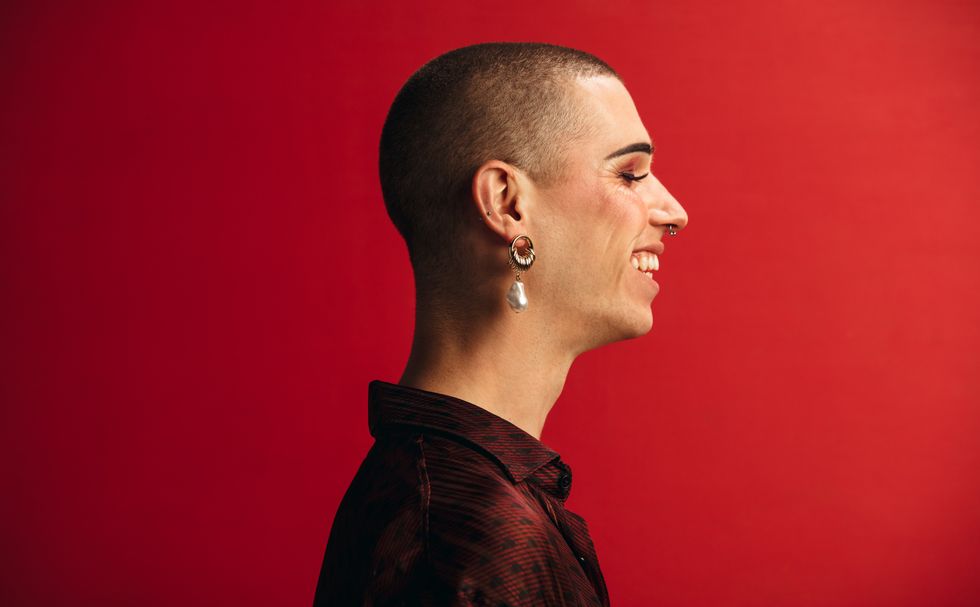
Shutterstock
Being aromantic is a sexual orientation. It is not a gender identity. Aromantics consist of people in all genders and the pronouns that come in between, so gender really has nothing to do with being aromantic. Those who identify as genderless or gender-neutral tend to be classified as “agender” or “non-binary,” but identifying as such doesn’t automatically make you aromantic, and vice versa.
#9 Aromantics are alone forever
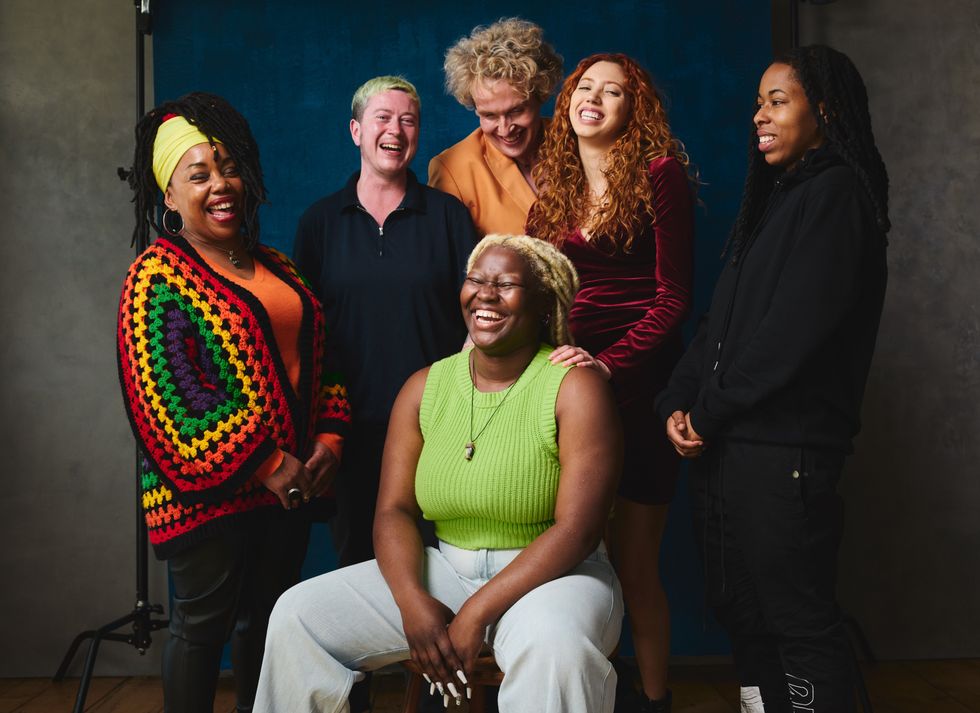
Shutterstock
Aromanticism is not a relationship status. Many of the platonic friendships they engage in are known as queer-platonic relationships or QPRs. Also remember, aromantics are more likely to engage in casual sex without any of the strings that come attached to it. Identifying as an aro doesn’t mean you’ll spend your entire life without anybody else ever being in it.
#10 Aromantic people aren't part of the LGBTQIA+ community
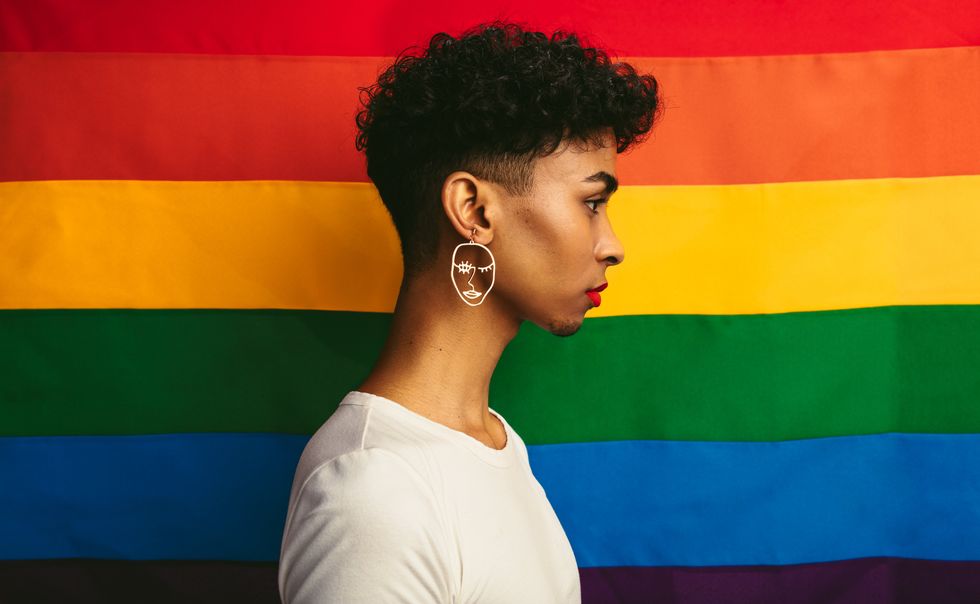
This assumption also goes for asexual people, that the aces and aros aren’t “queer enough” to be considered part of the community. This is also known as “gatekeeping,” wherein some form of policing occurs to exclude members of certain demographics. The question of aromanticism being inherently queer is very complex and can often be a sensitive topic among the aro community. As the term “queer” shifts, it moves more toward an umbrella term that’s more of owning your self-identification and welcoming anybody into the community who does the same.

















































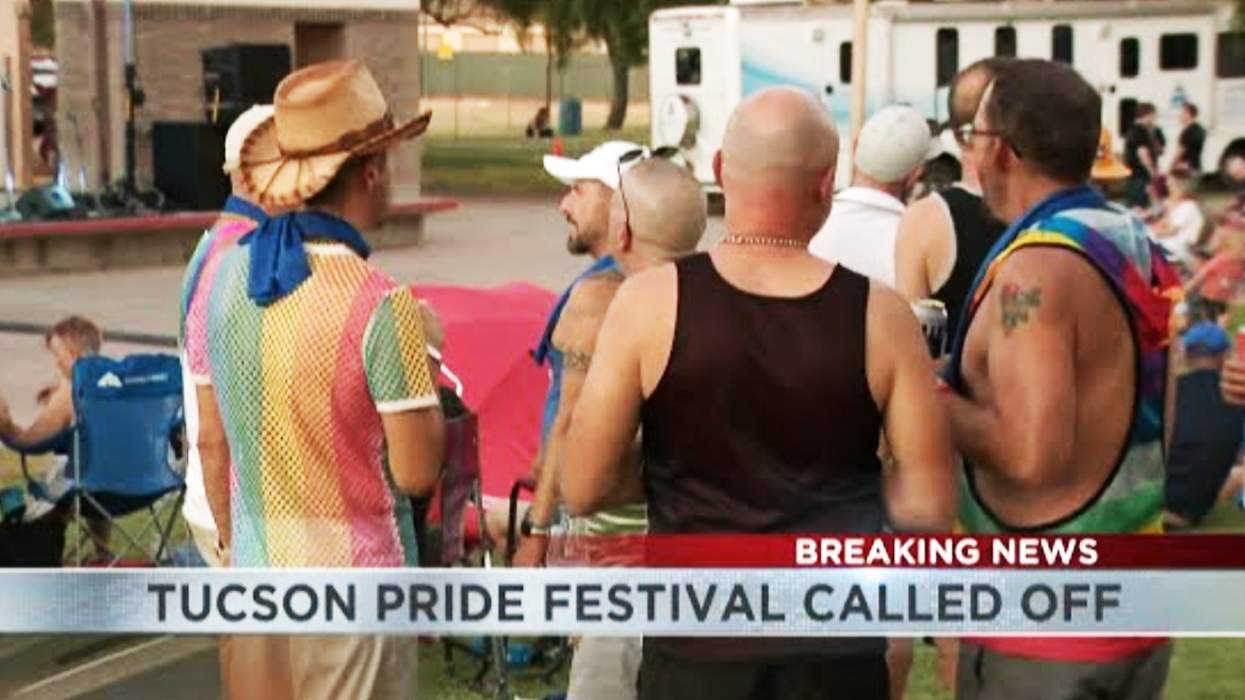







 35 bisexual pop anthems we have on constant repeatYouTube.com/Binoy
35 bisexual pop anthems we have on constant repeatYouTube.com/Binoy












 A couple kisses in the middle of the street during the Christopher Street Day ; Men seen kissing during the 2023 Pride Barcelona Parade.Yerchak Yauhen/SOPA Images/LightRocket via Getty Images; imone Boccaccio/SOPA Images/LightRocket via Getty Images
A couple kisses in the middle of the street during the Christopher Street Day ; Men seen kissing during the 2023 Pride Barcelona Parade.Yerchak Yauhen/SOPA Images/LightRocket via Getty Images; imone Boccaccio/SOPA Images/LightRocket via Getty Images




